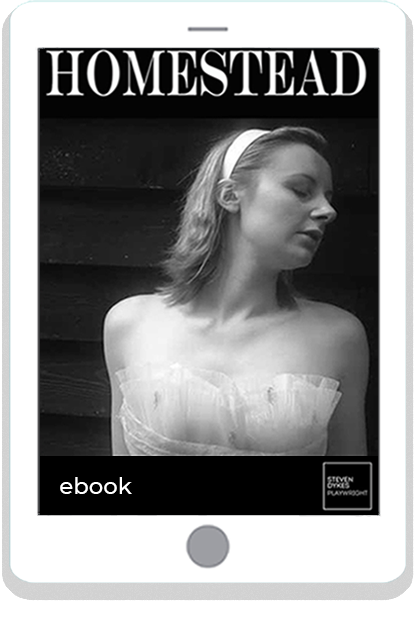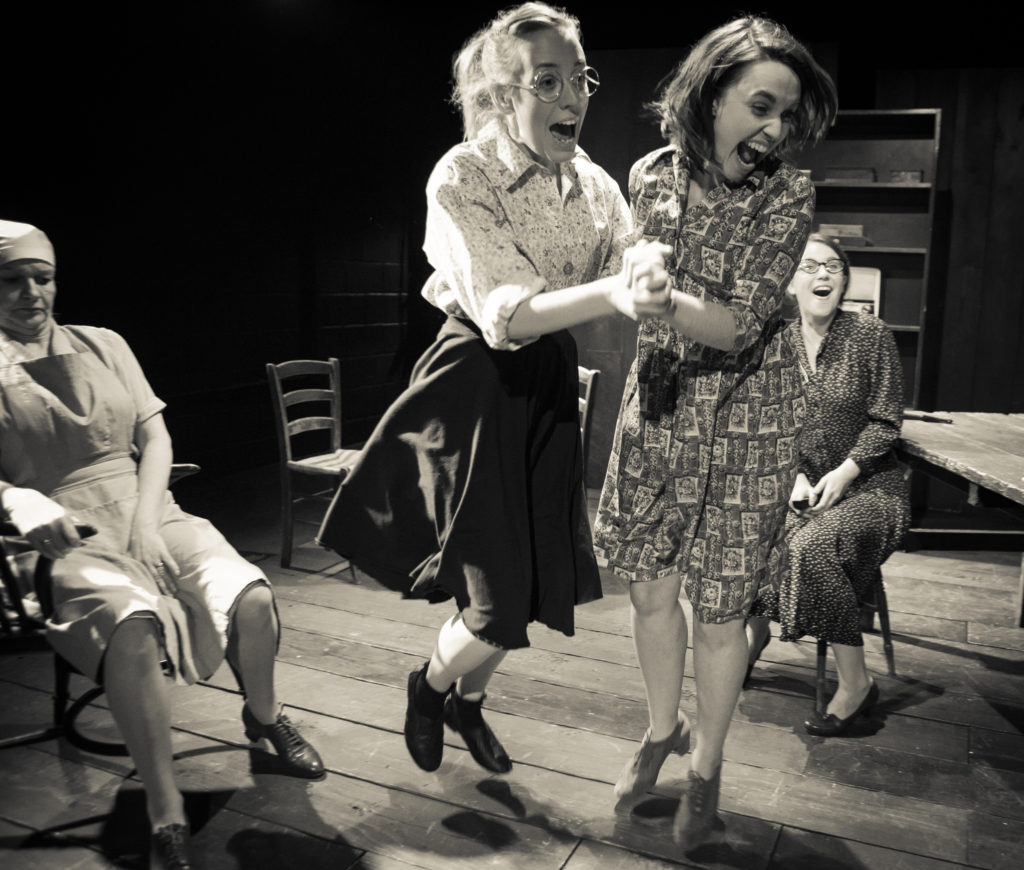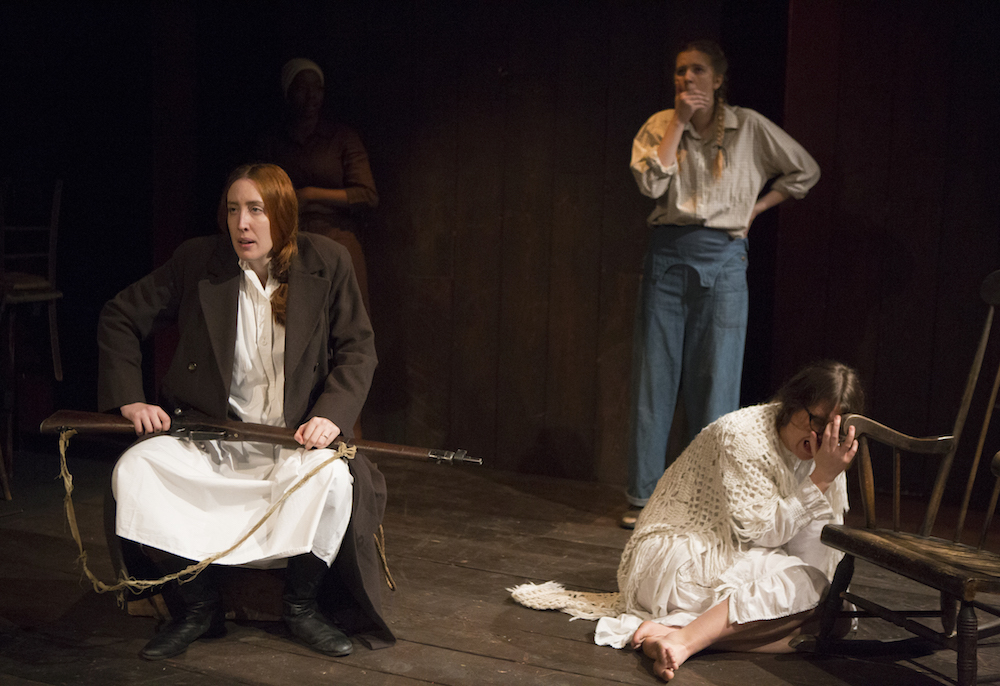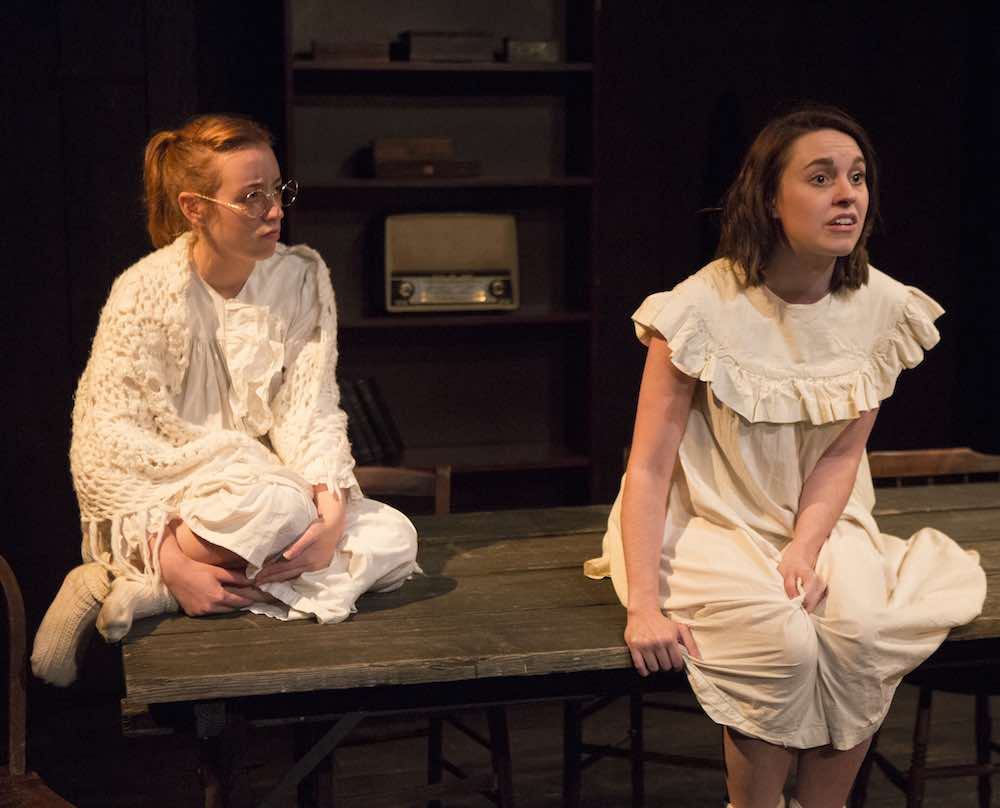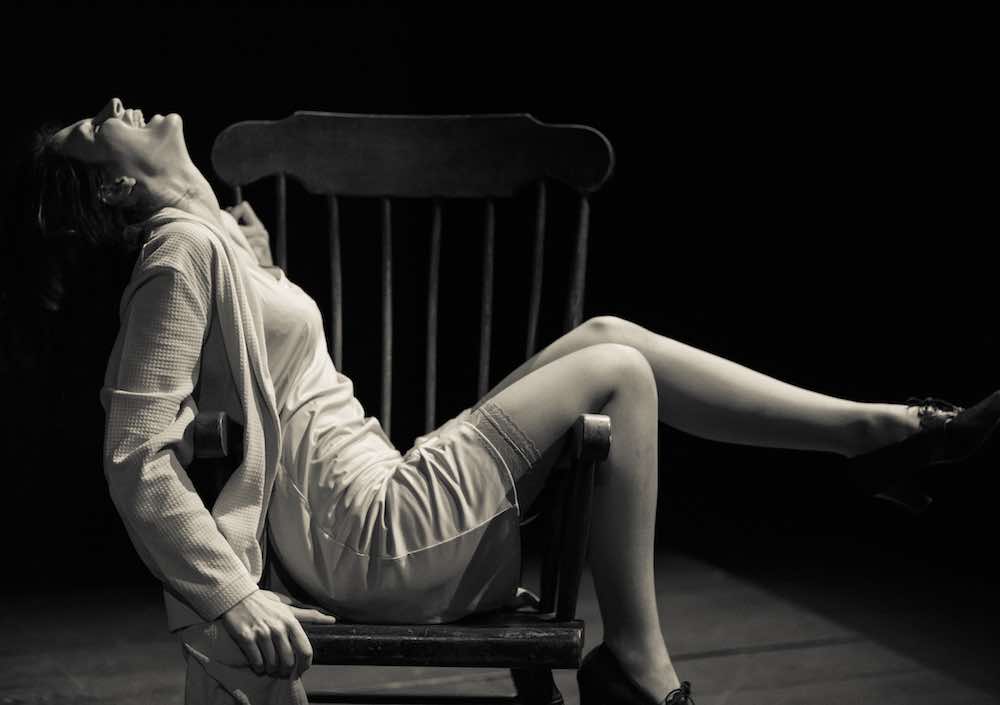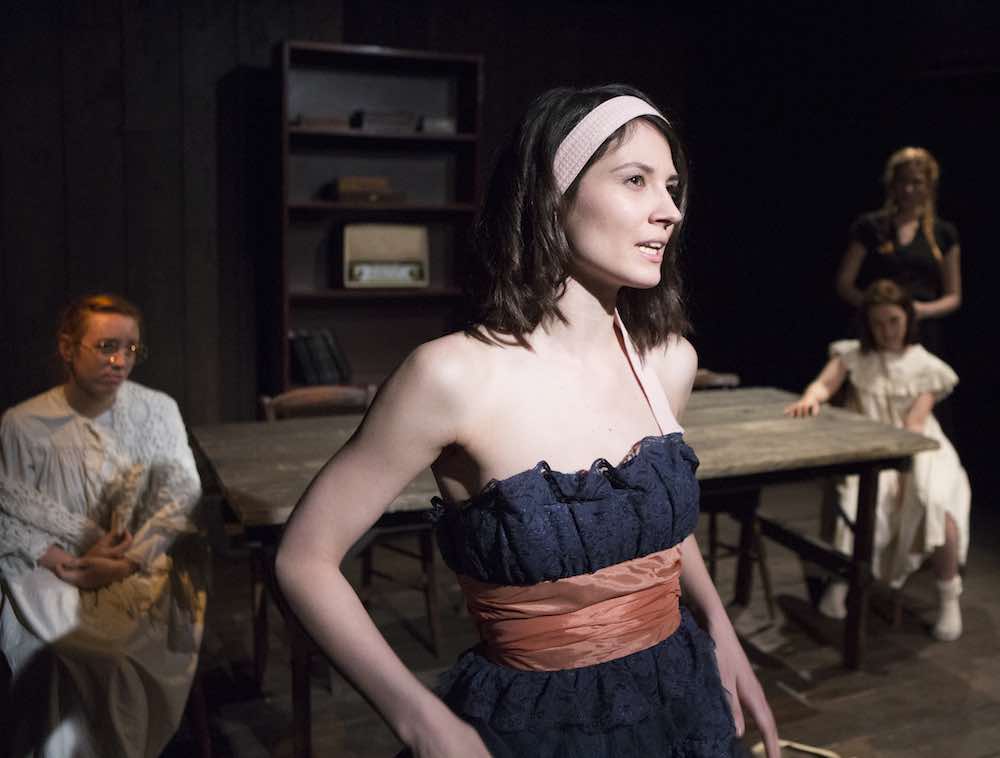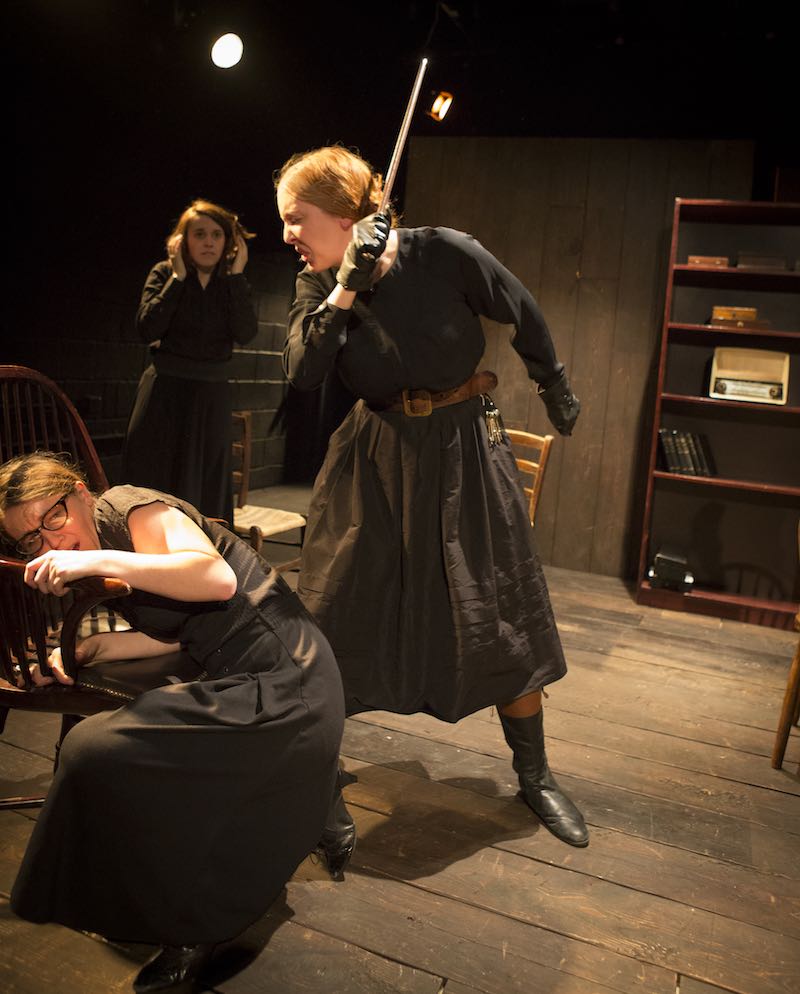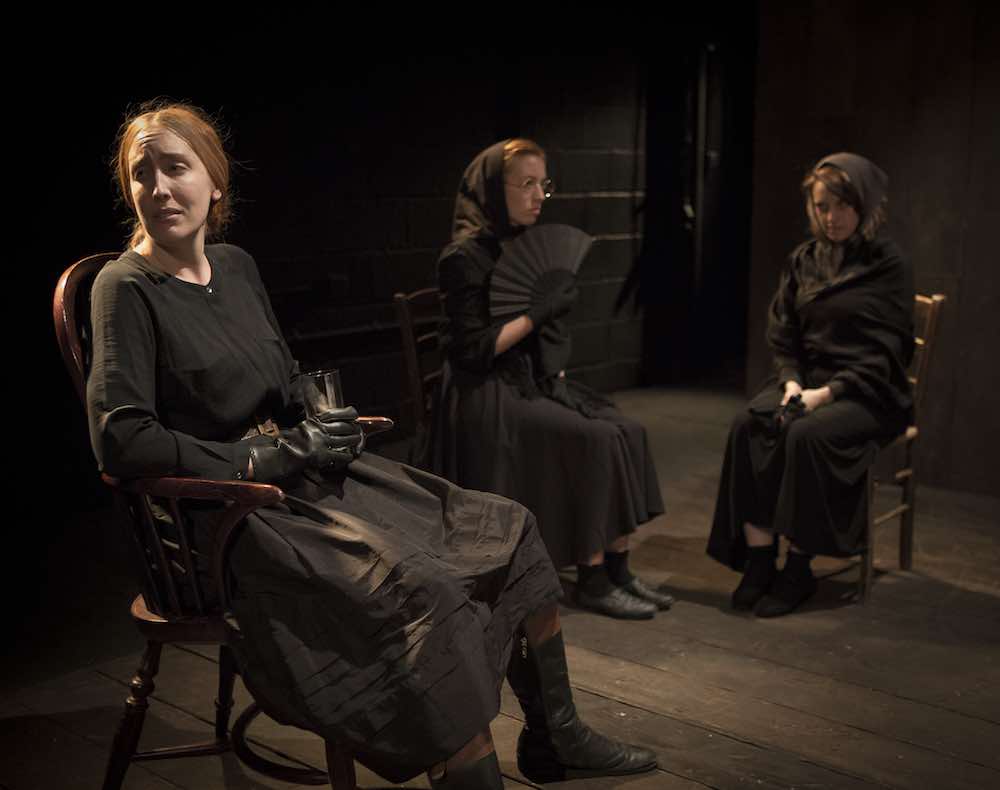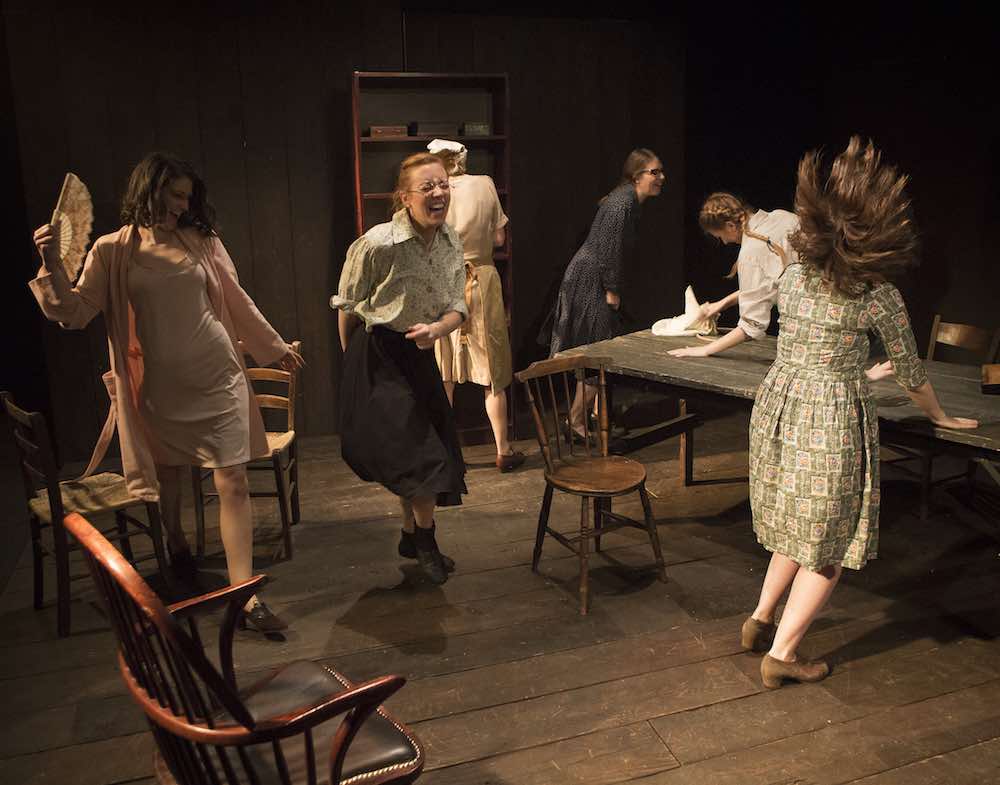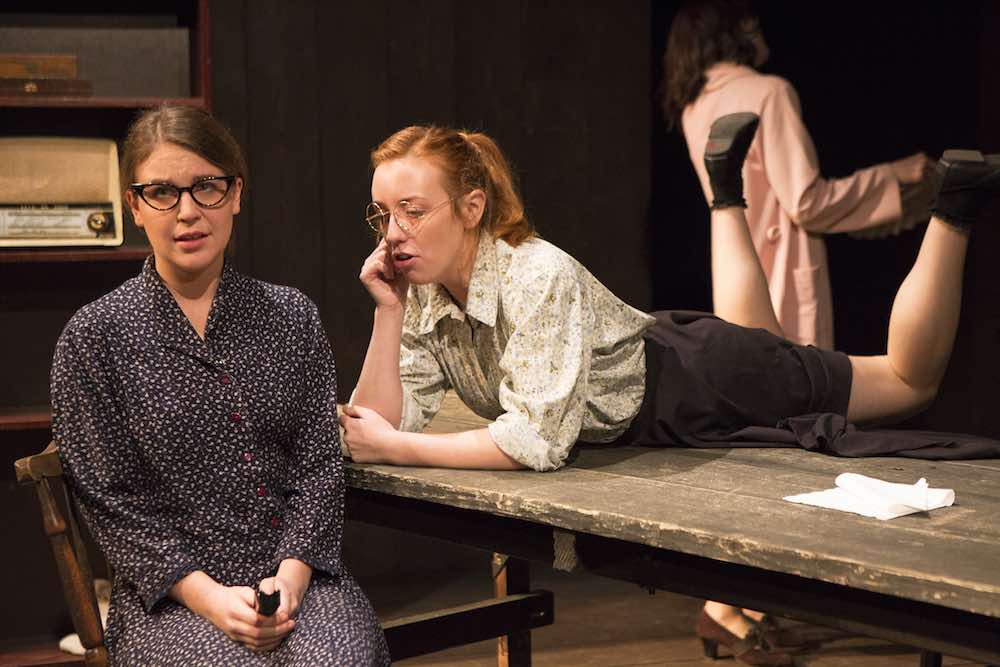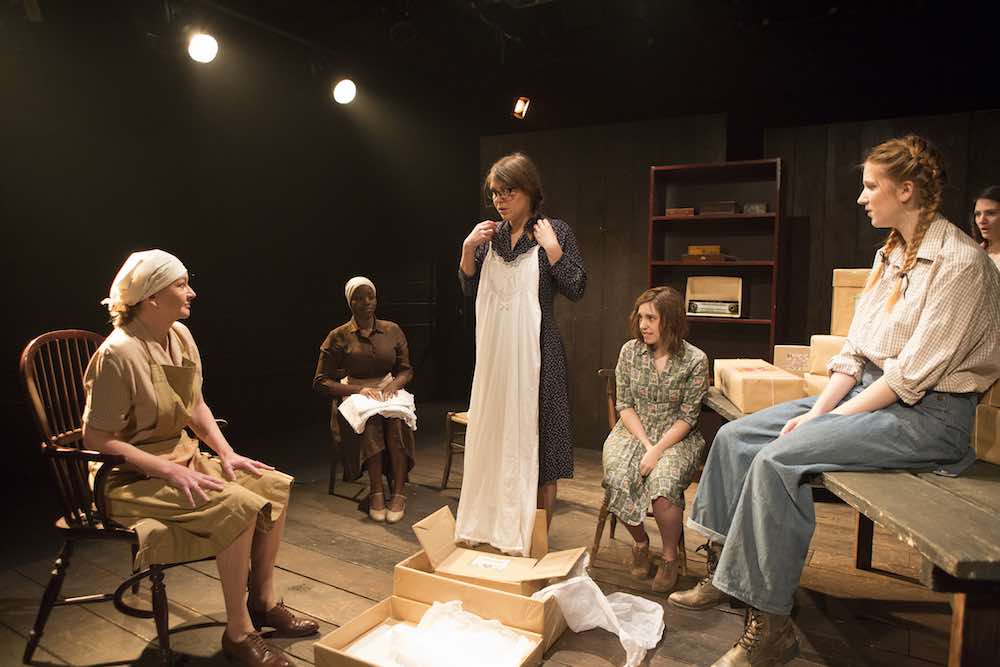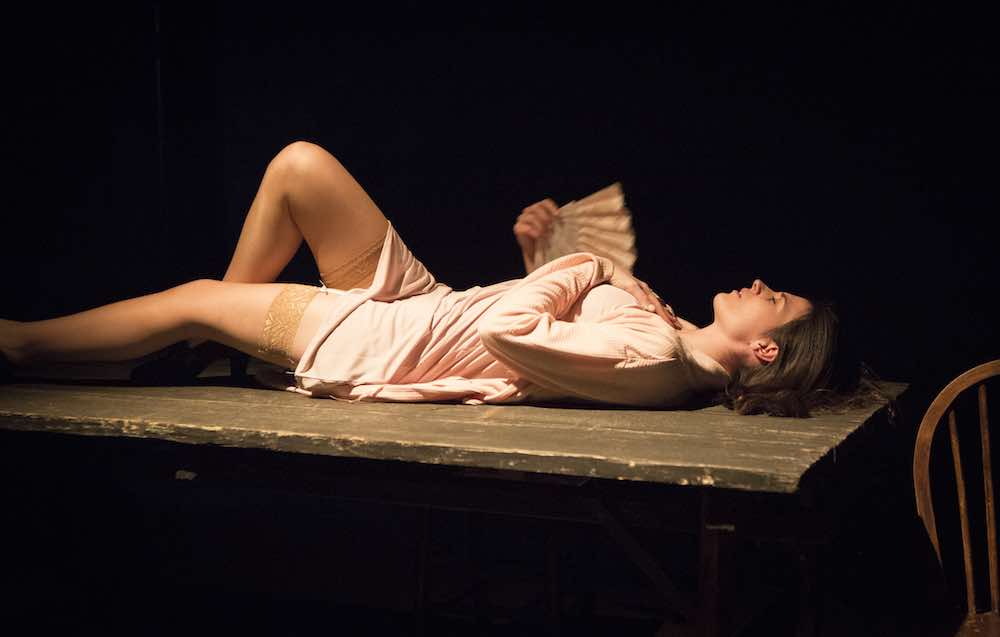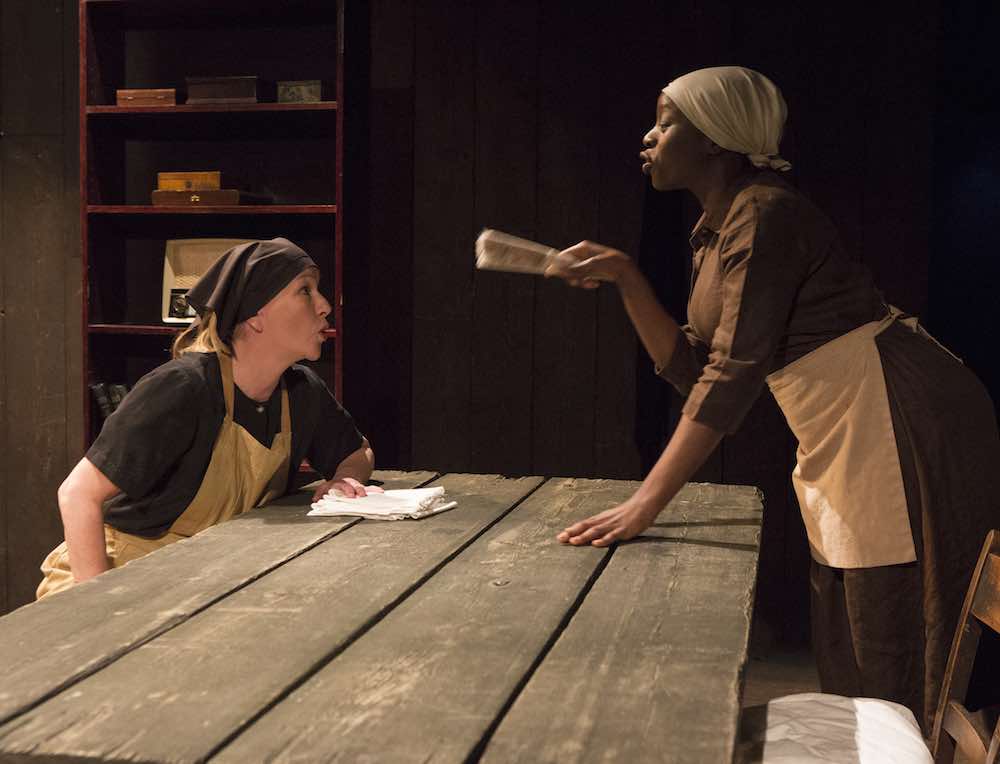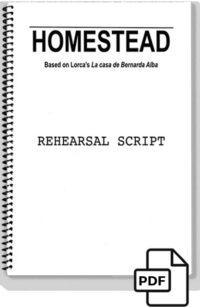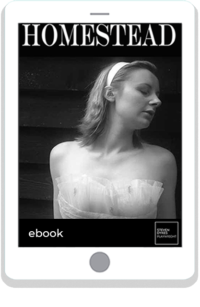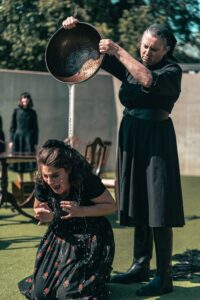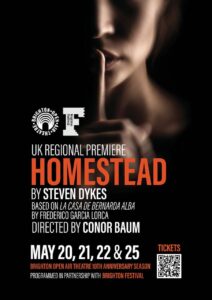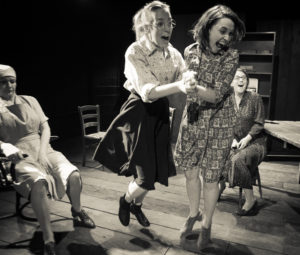A thrilling reimagining of Lorca’s masterpiece La Casa de Bernarda Alba, set in the American South of the turbulent 1950s
A thrilling reimagining of Lorca’s masterpiece La Casa de Bernarda Alba, set in the American South of the turbulent 1950s
Set in the American South of the turbulent 1950s, Homestead is a thrilling reimagining of Lorca’s masterpiece of desire and betrayal. A fatal collision of frontier values and post-war dreams. Communal hymns and boys with cars. Church elders and Elvis Presley.
Following the death of their father and governed by their mother’s Primitive Baptist faith, the five Beckman daughters face a lengthy confinement within the walls of their remote Texan homestead. The youngest daughter’s passionate defiance of religious convention, however, soon unleashes the pent up jealousy and sexual frustration of the all female household.
The House of Bernarda Alba was the last play Lorca completed before his murder at the hands of pro-Franco thugs in 1936. While the lives of the women in the play appear not to have changed for a hundred years, the country itself is on the verge of civil war. The illicit passion and murderous jealousy which provoke the domestic crisis in the Alba family clearly reflect Lorca’s comprehension of what was at stake as political violence escalated in Madrid and beyond. In Homestead, despite Lillian Beckman’s attempts to hold back the tide, Texas, the South, indeed America itself is also beginning to experience a time of violent social upheaval: the Civil Rights Movement of the 1950s. There is a sense that her daughters’ rebellion is somehow in tune with larger forces that will fundamentally challenge the conservative nature of Lillian’s ‘pioneer’ tradition – even if the expression of this rebellion is at first no more subversive than covert dancing to Elvis Presley.
Tex-Mex
Texas history is also the history of the Hispanic population that has lived in the territory since its first exploration by Spanish invaders 400 years ago; and the music, fashion and food of Texas are all heavily influenced by culture brought from South of the Rio Grande. This enabled us to retain the exotic allure of Lorca’s central (but unseen) character: the dashing Pepe el Romano – or Antonio Hernandez as we have renamed him.
“Horse and a whip for a man. Needle and thread for a woman.”
Bernarda Alba breeds horses; Homestead’s Lillian Beckman is a cattle-rancher. Both women have earned a small fortune and a local reputation for sheer bloody-mindedness based on their cultivation of land that requires a great deal of labour and resources to keep it (in Lillian’s phrase) “half-way civilised.” Lorca’s language, rich with vivid references to animals, insects and the merciless weather, is the language of people who wage a constant battle with their environment; rural Texans share this respect for (and awe of) the land and a similarly colourful vocabulary. And in these communities, it is rare for women to challenge the dominant culture of the vaquero or cowboy.
Music
Lorca’s play is scored throughout with the ‘folk’ music of the village: from the church bells of the opening to the profane offstage chorus of the reapers. With Homestead, we have tried to provide an equally intense soundtrack to the characters’ lives: in particular, the fine a capella choral tradition of the Primitive Baptist Church, in which musical instruments are prohibited in accordance with a strict interpretation of the King James’ Bible. The hymns, spirituals and sermons you’ll hear are from Alan Lomax’s extraordinary ‘field’ recordings of congregations in Appalachian, Arkansas and Texas in the late fifties. The folk and country music that emanates from the daughters’ much loved radio is that which featured on the KDAV Station in Lubbock at the time – the first of its kind in the States and still going strong!
Fate
Central to the theology of Primitive Baptists is an undiluted Calvinist belief in the Pre-destination of the Elected: before God created the world, He had already decided who would be chosen to enter the Kingdom of Heaven, and so all those individuals who number among the Elect will be at some point in their natural lives quickened by the Spirit of God, feel His Irresistible Grace. Intriguingly, this means that since every human action or choice is part of His plan, God, and not the Devil, is the author of sin; if people choose to sin, they do so according to God’s purpose and not in opposition to it.
It seemed to me that the depiction of an American household steeped in this faith might make a dramatically telling comparison with Lorca’s. A young woman assured from birth that her destiny is already mapped out and that God will surely one day ‘quicken her spirit’ would either find great comfort in such dogma or perhaps reject it with considerable force.
Individual versus Community
Finally, I feel the closest link between Lorca’s original and an American transposition is in the shared recognition of the power of desire. The daughters’ sense of themselves is defined essentially in terms of their sexuality and their self-esteem in terms of their freedom to express the desire they feel. This definition of desire as a force of opposition, a passionate, anti-intellectual defiance of oppression, even death, lies at the heart of American drama, in particular in the work of Tennessee Williams. Indeed Gwynne Edwards’ analysis of Lorca’s work in the introduction to her translation of Bernarda Alba (1998) could be applied equally to Williams, Arthur Miller, Lillian Hellman or Eugene O’Neill:
“Lorca’s concept of tragedy has at its core the notion of aspiration … characterised by its intensity and single-mindedness. Because different characters have different aspirations, it follows that desires and passions are frequently incompatible with and intolerant of the wishes of others, mutually exclusive, and that, because these passions are also deep-rooted and ineradicable, the characters themselves are inevitably set on a collision course whose outcome will be catastrophic.”
Lorca’s characters may express themselves in a manner which strikes us as distinctly un-English, but perhaps in ways that are not entirely un-American. As Tony Kushner in his afterword to Angels in America Part II: Perestroika (1993) puts it:
“Given the bloody opulence of [America’s] great and terrible history, given its newness and its grand improbability, its artists are bound to be tempted towards large gestures and big embraces … [to] strike inflated, even hysterical, chords on occasion. It’s the sound of the Individual ballooning, overreaching. We are all children of ‘Song of Myself’.”
Or in the words of Adele, the youngest daughter, in Homestead:
“You know how the Elders tell it in our prayers and such in church? How God comes to the Chosen like a stirring in your soul. And His Grace is irresistible, cos He picked you out before the world began … How if you are His Chosen, you’re Elected and the Quickening’ll come, whether what you think you want is Saving Grace or not. And His spirit’s overpowering and your body’s filled with light … Well, I know I’m not the Chosen now, I don’t feel that way about God. But still I know that feeling and it’s just as overwhelming and it’s calling me tonight!”
”Dykes' muscular, atmospheric reworking of Lorca's The House of Bernarda Alba beautifully rebottles the original's drama of unnatural confinement for an evening that rivals the starrier houses roundabout.
Kieron QuirkeThe Evening Standard, October 2006
“Homestead would do Lorca proud and is a primary example of how the classics are not lost in their era forever. The research and exactness of this production helps it come alive and redefine the tragedy of La casa de Bernarda Alba his play has everything going for it. The additional prominence of women’s rights and the idea that women should be a domestic goddess rather than anything else rings true in a modern day society, especially when the significance of equality and feminism is at the forefront of our minds. It is a renewed look at how far we have come, but how far we still have to go.”
Rebecca GwytherA Younger Theatre.com, January 2016
“Steven Dykes’ interpretation of Lorca’s La casa de Bernarda Alba is a triumph. The writer does not miss a beat in transposing the action from thirties rural Spain to the ‘pan-handle plains of 1950s Texas’. The play’s themes of conservatism and oppression cry out for such a pressure cooker of simmering tensions and they are given plenty of oxygen here.
Catholicism becomes the doctrine of the Primitive Baptist Church as the all-female household mourns the loss of its patriarch behind closed doors. All in black, the cane-wielding widow Lillian Beckman (Hollie Garrett) rules the roost with a cold Puritanism, preaching the old order of things.
Garrett stamps her mark on this play, bringing an oppressiveness every time she appears, snuffing out any moments of abandon enjoyed by her daughters. She is totally believable and shares this quality with rest of the cast. It must be said that all are superb and individually deliver the careful degrees of shading necessary to make this ensemble piece shine.
Shady Dolls graduated from the American Theatre Arts course at Rose Bruford and Dykes wrote this specifically for them. The course lays down principles in its performances of in some way reflecting or interpreting an American social and/or political context. It is perhaps this common manifesto that lends the whole enterprise an added air of authority and conviction.
But it would be certain to fall flat without the quality of writing and execution on display here. The fidelity to idioms of Texan speech is impressive and the singing too hits the mark. I can’t really find anything to fault, except perhaps the length of the run - too short. This play deserves to be seen.”
David SimmonsThe Stage, October 2006
”Has the National re-located to Covent Garden? Homestead is the kind of grand, cathartic epic more usually seen gracing the stage of the Olivier or the Lyttleton than that of a fringe theatre about to close for lack of funding. I hope one of Nicholas Hytner's team does make the trip down to the Theatre Museum at some point before 15th October, because Dykes' own production of Homestead is ripe for a no-expenses-spared reincarnation in one of the loftier spaces on the South Bank.
Which is not to say that there is anything much missing from the production in its current incarnation. Dykes' all-female cast, led by Hollie Garrett's stoical matriarch Lillian Beckman, lead the audience on an epic journey which traces the lives of a mother and her five young daughters living in the deep South following the death of their ranch-owner husband and father. Lillian Beckman has no son to take her husband's place, although Ray Beckman did, unknown to his grieving family, father an illegitimate son by the family maid, Clarice. A major theme of the play is that of women surrounded by the demands and temptations of good-for-nothing males, from their dead husband/father, to the undisclosed heir to the ranch and the local traders who see a lone female ranch-owner and smell vulnerability. Ultimately, tragedy will come in the handsome form of Mary Beth's fiancé, who proposes for money and then falls prey to the more obvious charms of her sister, Adele, while also managing to break the heart of Lillian's third child, Mara Lee.
Homestead is that rare thing, a play based on another play which has a new, fresh, legitimate voice of its own. Shady Dolls' impressive production raises a significant question for London theatre and those responsible for its funding and development - why is a theatre producing such high quality new writing about to close, while the West End continues to churn out luke warm tourist-pleasers which add so little to the cultural life of the nation?
Louise HillThe British Theatre Guide, October 2006
CHARACTERS
CHARACTERS
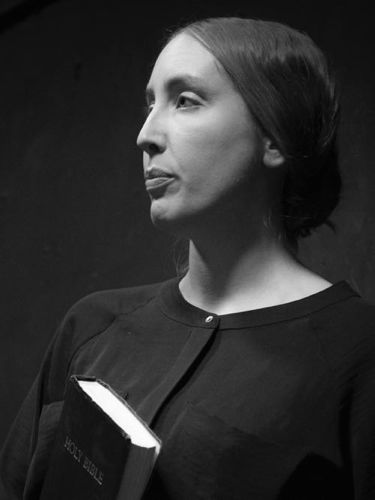
Lillian
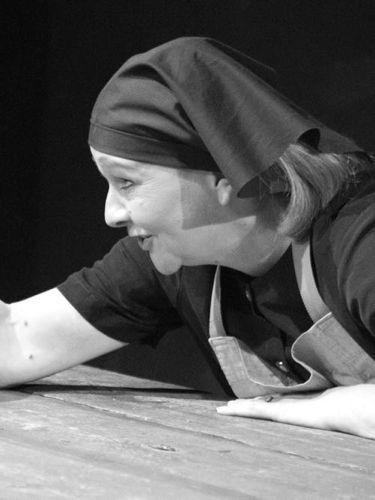
“A good dog gets less of a kicking, I guess. No, we know each other well enough … Our folks go back a ways. Ain’t a secret between us, not a one. She’s like her mother before her: a mean ol’ diamond-back. I just know to keep my distance when she starts a-rattling. But one day … oh boy.”
Birdie
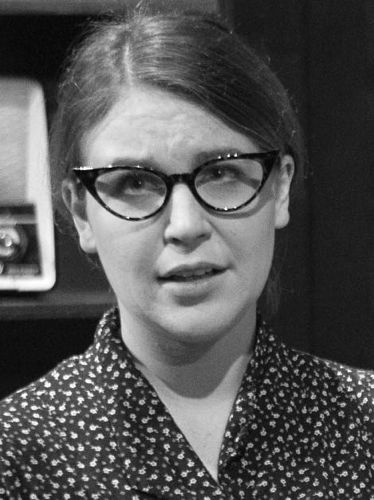
“I just sorta looked into his eyes. Shining out of the dark like that. And it kinda struck home. I thought: I’m alone – at night – with a man. Me. Agnes. And I felt there was no one else, no one but this man and me on the face of the planet. Just the dark. And the silent plains beyond. And beyond that the desert and the ocean sound asleep. A world away. … So then real slow and real careful, his fingers touched mine, and there we were, holding on to the bars of the window, holding on together. And he leaned in real close. Like it was only me. Only me could set him free. And … you know … I just said yes. Yes.”
Agnus
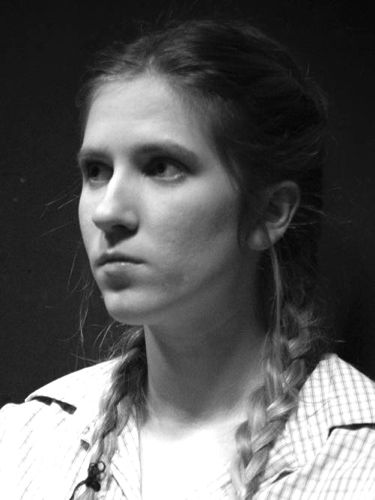
“Men work hard, they should have their fun … Wouldn’t stop me, I had the chance. All day on horseback or in the field. Imagine. Or splitting timber in the Great North Woods. Riding the railroad down to the New Mexico. Heading where the work takes you, who knows? Down the coast. The Corn Belt. The Lakes. Laying out all night. Sleeping sound cos you know you truly earned your rest. … Better than life in this convent.”
Mary Beth
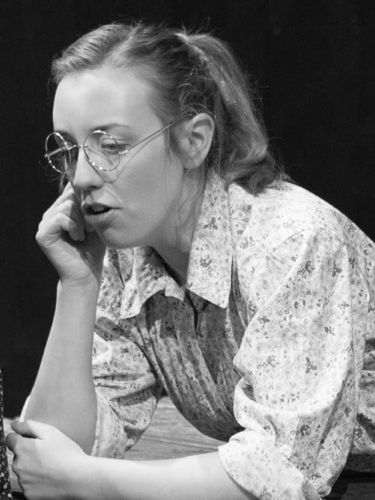
“The men were talking ‘ bout her. They said last night some boys took her. Threw her in the back of a truck and drove off. They said they brought her back and it was almost dawn and she wasn’t wearing nothing on top no blouse or camisole or anything and they said she was lying cross one of the boys in back and he was playing her like if she was a guitar and she was naked on top and he was strumming on her, on her, you know, her skin, I guess, like she was a guitar … Why’d they play her like a guitar, Birdie?”
Amy Lynn
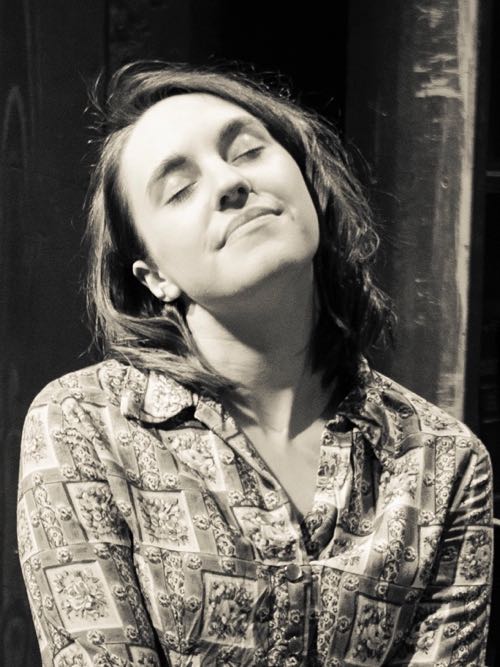
“Remember daddy used to take us watch the men corralling horses? … I’d stand beneath ‘em, hugging the fence pole, hating the heat and smell and everything. I’d watch their hands, the men. Pulling torn gloves over their mud-caked fingers, black black fingernails, shirt sleeves rolled, cigarettes in the corner of their mouths, smoke and loud voices and spurs splashing blood on their boots, wiping the sweat from their brows with tanned forearms, their big ol’ hats held in their big bear paws, daddy laughing hard right along with them. Good ol’ boys.”
Mara Lee
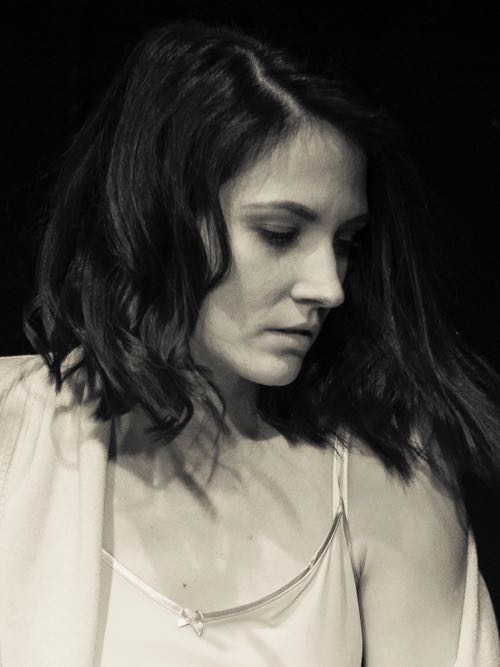
“If sin’s in my heart, it’s there for a reason, though, ain’t it! God put it there, didn’t he? Ain’t nothing I can do about it! We’re all made for a purpose, ain’t we, sister? That’s what they tell us, ain’t it? Well then, looka here. Look at me! Look! Maybe I was made for sin!”
Adele
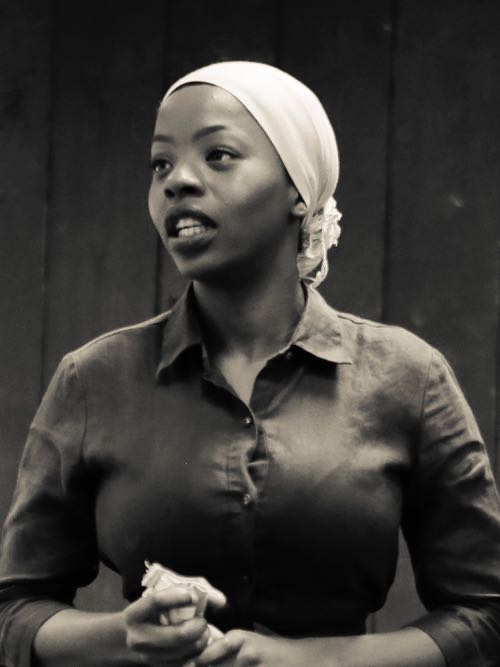
“I look at them. They don’t know, do they? Reckon I oughta tell ‘em, huh? … No, maybe not. But we know it, master, we know it. The power of a man over a lonely woman.”
Clarice
”Dykes' interpretation of Lorca's La casa de Bernada Alba is a triumph.
The Stage (UK)
GALLERY
Photographs from the 2016 London production.
LATEST NEWS
Check out the latest updates about performances of this play.
